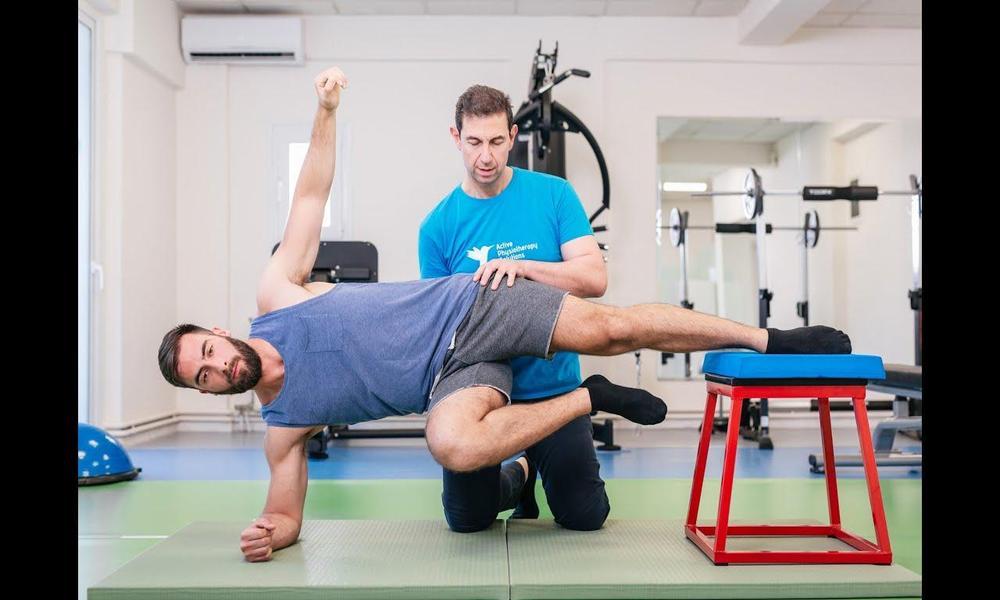Physiotherapy is a physical therapy. It is a healthcare profession focused on promoting, maintaining, and restoring physical function and mobility to people affected by different conditions, such as injury, illness, or disability.
Active Physiotherapy is recommended for a wide range of conditions, including but not limited to:
- Musculoskeletal injuries (sprains, strains, fractures)
- Back and neck pain
- Arthritis
- Neurological disorders (stroke, multiple sclerosis, Parkinson’s disease)
- Cardiovascular conditions (heart attack recovery, heart failure)
- Respiratory conditions (chronic obstructive pulmonary disease, asthma)
- Sports injuries
- Post-surgical rehabilitation
- Posture-related issues
- Work-related injuries
Types of physiotherapy
Physiotherapy encompasses various specialized areas or types, each focusing on specific conditions, patient populations, and treatment techniques. Here are some of the common types of physiotherapy:
- Orthopedic physiotherapy. A type of physiotherapy specializes in treating musculoskeletal injuries and conditions, such as fractures, joint replacements, sprains, strains, and post-surgical rehabilitation.
- Cardiorespiratory physiotherapy. A type of physiotherapy concerned with treating individuals with cardiovascular or respiratory conditions, such as heart disease, chronic obstructive pulmonary disease (COPD), and asthma. Treatment aims to improve cardiovascular fitness and lung function.
- Pediatric physiotherapy. Pediatric physiotherapists work with infants, children, and adolescents who have developmental delays, congenital conditions, or injuries. Treatment focuses on improving motor skills, coordination, and overall physical development.
- Geriatric physiotherapy. Geriatric physiotherapy addresses the unique needs of older adults, helping them maintain or regain mobility, balance, and independence. It may include fall prevention strategies and management of age-related conditions like osteoporosis and arthritis.
- Sports physiotherapy. Sports physiotherapists is good for athletes to prevent, handle, and rehabilitate sports-related injuries. They also provide performance enhancement strategies to improve athletic performance.
- Women’s health physiotherapy. This specialization focuses on treating conditions specific to women, such as pregnancy-related discomfort, pelvic floor dysfunction, and postpartum recovery.
- Musculoskeletal physiotherapy. Similar to orthopedic physiotherapy, musculoskeletal physiotherapy addresses a wide range of musculoskeletal conditions and injuries, including those related to muscles, joints, ligaments, and tendons.
- Vestibular rehabilitation. Vestibular physiotherapy focuses on treating disorders of the inner ear and vestibular system, which can cause issues with balance, dizziness, and vertigo.
- Pain management physiotherapy. This type of physiotherapy focuses on managing chronic pain conditions using various techniques, exercises, and education to help patients cope with pain and improve their quality of life.
- Aquatic physiotherapy. Also known as hydrotherapy, this involves using water-based exercises and treatments to aid in rehabilitation and pain management due to reduced impact on joints in the buoyant water environment.
- Hand therapy. Hand therapists specialize in treating conditions affecting the hands and upper extremities, such as fractures, carpal tunnel syndrome, and tendon injuries.
- Oncology rehabilitation. Oncology physiotherapy provides support to individuals undergoing cancer treatment, addressing issues such as mobility limitations, fatigue, and lymphedema.
Physiotherapists may focus on one or more of these areas to provide targeted and effective care to their patients.




